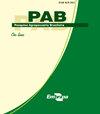Morphological and yield responses of 'BRS Vitória' grapevines subjected to bio-fertigation with aquaculture wastewater
IF 0.7
4区 农林科学
Q3 AGRICULTURE, MULTIDISCIPLINARY
引用次数: 0
Abstract
Abstract The objective of this work was to evaluate the agronomic responses of 'BRS Vitória' grapevines under bio-fertigation with and without conventional soil fertilizer. A completely randomized design was used, with three treatments and 18 replicates. The treatments were: CFI, conventional soil fertilizer and irrigation; BF+CF, bio-fertigation and conventional fertilizer; and BF, only bio-fertigation. The following variables were evaluated: graft and rootstock diameters; plant growth; number of lateral buds; root, leaf, petiole, and gem starch contents; bunch number per plant, length, circumference, and fresh weight; berry number per bunch, length, diameter, fresh weight, soluble solid contents, titratable acidity, and pH; yield; and leaf macro- and micronutrient contents. From 100 to 150 days after transplanting (DAT), rootstock and graft diameters were similar, increasing from 250 to 300 DAT in the CFI treatment. The highest root starch content was 7.19% in BF at 150 DAT and 37.35% in BF+CF at 300 DAT. The plants in BF+CF showed the best results for bunch number per plant and fresh weight, resulting in a fruit yield 22% higher than that obtained in the other treatments. 'BRS-Vitória' grapevines show a satisfactory agronomic performance when bio-fertigated.水产养殖废水生物施肥对‘BRS Vitória’葡萄植株形态和产量的影响
摘要本研究旨在评价BRS Vitória葡萄在常规土壤施肥和不施肥条件下的农艺反应。采用完全随机设计,3个处理,18个重复。处理为:CFI +常规土肥+灌溉;BF+CF、生物肥和常规肥;和BF,只有生物施肥。评估了以下变量:嫁接和砧木直径;植物生长;侧芽数;根、叶、叶柄和宝石淀粉含量;单株捆数、长度、周长和鲜重;每串浆果数量、长度、直径、鲜重、可溶性固形物含量、可滴定酸度和pH值;收益率;以及叶片宏量和微量元素含量。在移栽后100 ~ 150天,砧木直径和移植物直径基本一致,CFI处理的砧木直径从250 ~ 300 DAT增加。150dat时BF+CF的根淀粉含量最高,为7.19%;300dat时BF+CF的根淀粉含量最高,为37.35%。在单株束数和鲜重方面,BF+CF处理效果最好,果实产量比其他处理高22%。“BRS-Vitória”葡萄藤在生物施肥后表现出令人满意的农艺性能。
本文章由计算机程序翻译,如有差异,请以英文原文为准。
求助全文
约1分钟内获得全文
求助全文
来源期刊

Pesquisa Agropecuaria Brasileira
农林科学-农业综合
CiteScore
1.20
自引率
0.00%
发文量
45
审稿时长
9-18 weeks
期刊介绍:
Pesquisa Agropecuária Brasileira – PAB – is issued monthly by Empresa Brasileira de Pesquisa Agropecuária – EMBRAPA, affiliated to Ministry of Agriculture, Livestock and Food Supply. PAB publishes original scientific-technological articles on Plant Physiology, Plant Pathology, Crop Science, Genetics, Soil Science, Food Technology and Animal Science.
Its abbreviated title is Pesq. agropec. bras., and it should be used in bibliographies, footnotes, references and bibliographic strips.
 求助内容:
求助内容: 应助结果提醒方式:
应助结果提醒方式:


